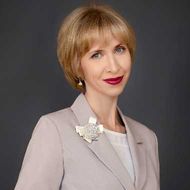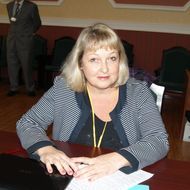- A
- A
- A
- ABC
- ABC
- ABC
- А
- А
- А
- А
- А
-
The School
21/4 Staraya Basmannaya Ulitsa, Building 5, B, Moscow
Phone: +7 (495) 772-95-90*22785
E-mail: sas@hse.ru
Likhacheva A., Strelnikova I., Kharina O. et al.
M.: CCEIS of HSE University, 2024.
Andrey V. Korotayev, Alina A. Khokhlova.
Comparative Sociology. 2025. Vol. 24. No. 3. P. 327-350.
Goliney V., Korotayev A., Malkov S. et al.
In bk.: BRICS Development in the Context of World Dynamics: Challanges and Perspectives. M.: Moscow University Press, 2024. P. 38-126.
Korotayev A., Ustyuzhanin V., Grinin L. E. et al.
. . ResearchGate, 2024
About the School
School of Asian Studies (SAS) is one of the leading Russian institution of academic excellence in East Asian and Middle Eastern studies with strong research and analytical background with research and teaching covering China, Japan, Korea and Middle East.
SAS was established in 2010 and from very beginning followed the pioneering approach to combine modern Asian studies with strong methodological and theoretical basis and deep proficiency in Oriental languages, namely Chinese, Japanese, Korean and Arabic.
SAS staff, all of whom are fluent at one of several oriental languages, are renown scholars or international-level experts in East Asia and Middle Eastern studies. Among them are professor Andrey Karneev, professor Eugeny Steiner, associate professors Mikhail Karpov and Alexey Muraviev. Stuff of the SAS bring their expertise in various fields to the wide range of state and private institutions for cooperation with Asian region, including joint state-level bodies Asian countries.
SAS follows the comprehensive approach in research and teaching in Asian Studies combining classical academic knowledge with modern methods and its practical implementation. This comprehensive approach includes:
- researches in fundamentals of Asian and Middle Eastern civilisations’ development, starting from social and cultural anthropology to the modern social, politic and economic development;
- correlation in studies between traditional history, culture, religions, art, literature, oriental philology and modern socio-economic and political issues;
- emphasis on the deep professional knowledge of different aspect of modern and classical oriental language for academic readings and professional communication.
SAS offers two popular programs:
- for undergraduates (5 years): “Asian studies” with two main specializations: “Oriental Society and Culture” and “Political and Economic development of the East”.
- for graduate students (2 years): MA program “Socio-economic and political development of Modern Asia” (offered only in English)
Some courses for undergraduate and all courses for graduate students are offered in English.
Teaching and research interests at SAS have a clear interdisciplinary background, with a strong emphasis on Oriental societies, politics, socio-economic development, economics and business, religions, art, history of traditional and contemporary East Asia.
In the teaching cluster SAS combines fundamental researches in the methodology and theory of Oriental societies with practical implementation of the gained knowledge. SAS also blends together several approaches: social and cultural anthropology of Oriental societies, political and cultural development, socioeconomic studies of Asian societies, etc SAS offers a unique opportunity for professional understanding of the development of modern Asian societies and political and the forecast of the political and socioeconomic development in East Asian and Middle Eastern countries.
In the research cluster SAS supports several important academic project opened not only to senior researches and professors but also for students. In this way student from the very beginning of their sojourn at the University can take part in the research, discussions, joint publications and to became an important part of academic and analytical work.
Among these projects are;
- research in economic and cultural connections in various countries in Asia;
- research in classical scriptures and its cultural and historical context;
- mutual perception of Western and Eastern cultures in the history and present;
- Asian diasporas overseas;
- sociopolitical trends in contemporary Asia.
In the international exchange cluster SAS intensively cooperate with programs and research centers of leading universities such as Beijing Normal University and Shanghai University, Guangzhou University (China), Hong Kong City University, Sheffield University (UK), Akita University (Japan), Chung-Ang University and Seoul Technological University (Republic of Korea), etc.
SAS widely contributes to the education of senior schoolchildren, e.g. offers a special classes in Asian Studies for the Lyceum (College) of HSE and lead very popular “School of Young Orientalists” opened for everyone. Every year SAS holds a “Oriental Crazy open day” which attracts dozens of future applicants and their parents by open lectures, master classes, trainings and even tasting of oriental food.
- About
- About
- Key Figures & Facts
- Sustainability at HSE University
- Faculties & Departments
- International Partnerships
- Faculty & Staff
- HSE Buildings
- Public Enquiries
- Studies
- Admissions
- Programme Catalogue
- Undergraduate
- Graduate
- Exchange Programmes
- Summer Schools
- Semester in Moscow
- Business Internship
-
https://elearning.hse.ru/en/mooc/
Massive Open Online Courses
-
https://www.hse.ru/en/visual/
HSE Site for the Visually Impaired
-
http://5top100.com/
Russian Academic Excellence Project 5-100
- © HSE University 1993–2025 Contacts Copyright Privacy Policy Site Map
- Edit


